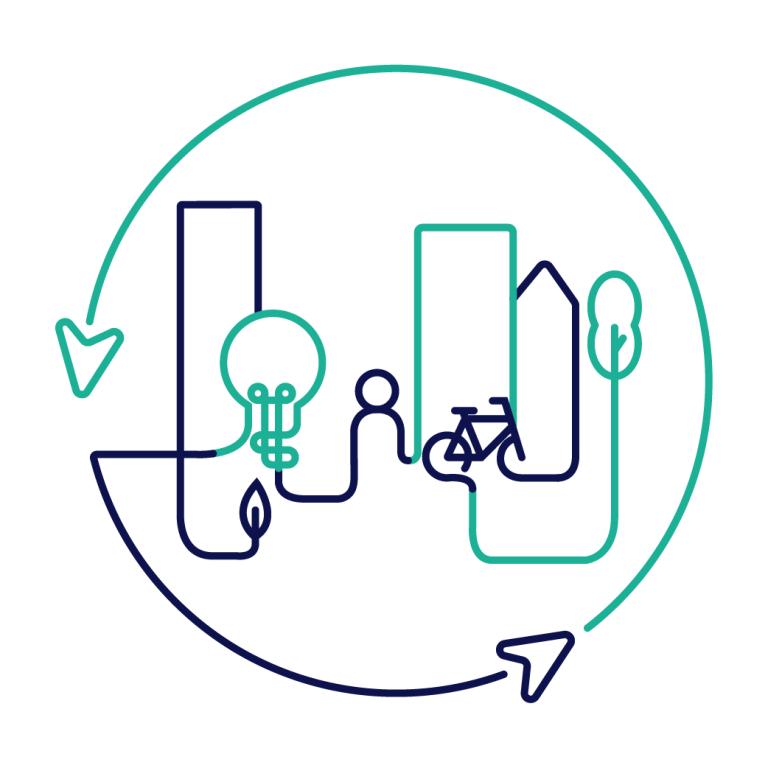European Urban Initiative (EUI) (formerly Urban Innovative Actions (UIA))
Updated on 19.09.2023
The European Urban Initiative (EUI) is an Initiative of the European Union (EU) that provides urban areas throughout the EU with resources to test new and unproven solutions to address urban challenges. EUI offers urban authorities the opportunity to take a risk and experiment with innovative and creative solutions.

More information
The main objectives of EUI are to provide urban areas throughout the EU with resources to test innovative solutions to the main urban challenges that they face, see how these work in practice and respond to the complexity of real-world issues. The EUI determines lessons learned on these issues and shares knowledge with other urban authorities across the EU.
The European Urban Initiative (EUI) is a novel initiative that will build upon past experiences and solutions, including those created by the UIA. The EUI will do so by going a step further and offering coherent support to cities, fostering city led innovation, and sharing urban knowledge, practices and building-up capacities to create novel solutions.
Activities on circular economy
Activities towards circular economy (CE) include funding urban areas with resources and expertise so that they can face urban challenges. Both resources and expertise come from a number of actors: Urban local authorities, private and other public sector, not-for-profit and voluntary organisations, university and research institutions, etc.
Target territory
Since they are uniquely focused on urban areas, the target territory of this initiative are cities. In this case, EUI supports cities of more than 50 000 inhabitants or groups of urban authorities with a total population of at least 50 000 inhabitants.
Sectors
EUI focuses on urban areas and, hence, all related sectors that might contribute towards the construction and improvement of cities. Calls for proposals have been launched to support agreed topics of the Urban Agenda for the EU including:
-
air quality
-
CE
-
climate adaptation
-
culture and cultural heritage
-
demographic change, digital transition
-
energy transition, housing
-
integration of migrants and refugees
-
jobs and skills in the local economy
-
sustainable use of land and nature-based solutions
-
urban mobility
-
urban poverty
-
urban security
Key services provided for the circular economy
The main objective of EUI is to provide urban areas throughout Europe with resources to test innovative solutions to the main urban challenges, see how these work in practice and respond to the complexity of real situations. EUI can provide cities with two levels of support:
-
Providing funding for cities’ projects: EUI finances up to 80 % of the project’s activities. In total, EUI can provide up to EUR 5 million through the European Regional Development Fund (ERDF) to implement innovative projects.
-
Capturing and sharing the knowledge that projects will generate: EUI wants to see how potential solutions work in practice. The EUI is interested in understanding what did and did not work in the implementation of a project. The EUI aims to collect the knowledge and shape it with other urban policymakers and practitioners across the EU.
-
As of the end of 2022 or the beginning of 2023, the EUI will include two strands: (a) the support of innovative actions, and (b1) the support of capacity building and (b2) support of knowledge building, territorial impact assessments, policy development and communication.
List of relevant material
Description of future collaboration with CCRI-CSO
-
CCRI will be able to benefit from the different calls/strands and activities the EUI are to launch in the years to come.
-
Progress made on calls/strands from EUI will be shared with CCRI in order to contribute with valuable information.
-
EUI’s projects and activities will be benefited and maximised with CCRI’s specific support to tackle emerging challenges.
-
CCRI will share drafts on potential investments with EUI, as well as the list of CSO projects.
-
Collaboration with Pilots will exist in individual specific areas of cooperation.




